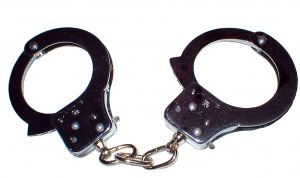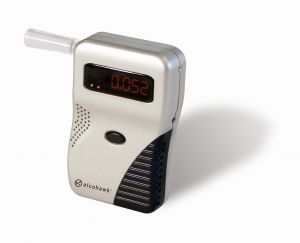According to a recent news article from the Daily News, a man arrested on suspicion of drunk driving in Tennessee allegedly threatened to join the terrorist group ISIS and kill the police officer as his first victim.
 Authorities say that defendant pulled into a gas station with a car with a broken windshield that had obviously been in an alcohol-related car crash and vomited on his pants. Defendant allegedly smelled strongly of alcohol and could barely stand beside his vehicle as police arrived.
Authorities say that defendant pulled into a gas station with a car with a broken windshield that had obviously been in an alcohol-related car crash and vomited on his pants. Defendant allegedly smelled strongly of alcohol and could barely stand beside his vehicle as police arrived.
Defendant was asked to perform some field sobriety tests but was stopped when asked to do the walk-and-turn and one-legged-stand tests.
After being placed under arrest for Driving Under the Influence (DUI), assault, leaving the scene of accident (hit-and-run) and driving without a license, the man was seated in the back seat of the police cruiser when he allegedly made the threats to the arresting officer. As noted in the article, if he was serious about his threats, he will have wait until he is released from jail before taking any action.
Boston drunk driving injury lawyers know hit-and-run cases and cases involving drivers who are unlicensed pose more challenges than a typical alcohol-related car accident lawsuit.
The reason these cases are more complex is that, in the case of a hit-and-run, if police do not find the driver, it may be impossible to serve that person with a civil complaint and make him or her a defendant in the lawsuit. In the case of a driver who does not have a license, it is likely that he or she does not have car insurance, since auto insurance companies require proof of license and driving history before offering coverage.
Continue reading
![]() Defendant is alleged to have sideswiped a man driving a 1939 Ford Cabriolet causing the vehicle to spin out of control. A witness called the local police and said he had been following the suspect’s vehicle and that that the driver was his mother.
Defendant is alleged to have sideswiped a man driving a 1939 Ford Cabriolet causing the vehicle to spin out of control. A witness called the local police and said he had been following the suspect’s vehicle and that that the driver was his mother. Boston Drunk Driving Accident Lawyer Blog
Boston Drunk Driving Accident Lawyer Blog




 According to a recent news article from
According to a recent news article from  According to a recent article in the
According to a recent article in the  Not only is the drunk driver taking a risk of hurting himself or herself, it is risk taken on behalf of others without their knowledge or consent. Each year, across the nation and in the Commonwealth of Massachusetts, lives are ruined and lost due to drunk driving car crashes.
Not only is the drunk driver taking a risk of hurting himself or herself, it is risk taken on behalf of others without their knowledge or consent. Each year, across the nation and in the Commonwealth of Massachusetts, lives are ruined and lost due to drunk driving car crashes. Brent’s suspension was related a 2012 drunk driving car crash that resulted in the death of his Cowboys teammate, Jerry Brown. The suspension means that Brent cannot participate in any team activities or even begin practicing until week nine of the regular season. If he is involved in any other prohibited alcohol-related incidents, including drunk driving, he will not be allowed to return to the NFL.
Brent’s suspension was related a 2012 drunk driving car crash that resulted in the death of his Cowboys teammate, Jerry Brown. The suspension means that Brent cannot participate in any team activities or even begin practicing until week nine of the regular season. If he is involved in any other prohibited alcohol-related incidents, including drunk driving, he will not be allowed to return to the NFL. Phelps posted a response to the breaking news on his Twitter account, stating that he knows the severity of his actions and that he is deeply sorry to anyone he has let down.
Phelps posted a response to the breaking news on his Twitter account, stating that he knows the severity of his actions and that he is deeply sorry to anyone he has let down. Authorities say that defendant pulled into a gas station with a car with a broken windshield that had obviously been in an alcohol-related car crash and vomited on his pants. Defendant allegedly smelled strongly of alcohol and could barely stand beside his vehicle as police arrived.
Authorities say that defendant pulled into a gas station with a car with a broken windshield that had obviously been in an alcohol-related car crash and vomited on his pants. Defendant allegedly smelled strongly of alcohol and could barely stand beside his vehicle as police arrived.  Monroe was pulled over by police for driving with a headlight out. He is alleged to have told police that he is trying not be in the newspaper for drunk driving. He told police that he plays for the Detroit Pistons.
Monroe was pulled over by police for driving with a headlight out. He is alleged to have told police that he is trying not be in the newspaper for drunk driving. He told police that he plays for the Detroit Pistons.